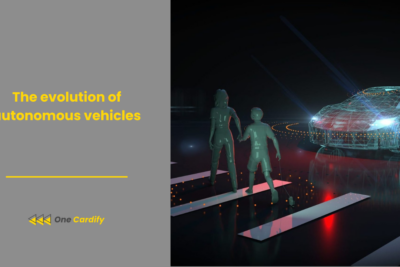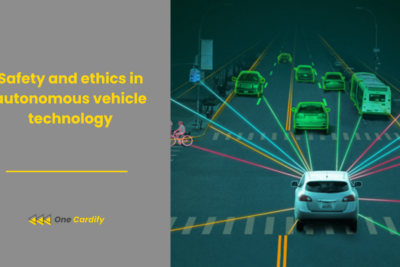
Quantum computing's potential in research
Quantum computing has ushered in a new era of exponential growth in computational power, freeing the binds of classical computing once and for all. Certainly, this advanced technology will change research in a number of areas, providing discoveries that used to belong to science fiction.Utilizing the principles of quantum mechanics, quantum computing enables to process and analyze large volumes of data at remarkable pace. The research role is unlimited from solving tough mathematical problems to advancing drug discovery, improving cybersecurity, and even in solving problems in climate change by the use of simulation of the environmental and ecological systems with high predictive capability.This part investigates the disruptive role of quantum computers in research, outlining its innovative applications and the hopeful future it opens for solving some of the most complicated problems of our species.
The Quantum Leap: Beyond Classical Computing
Quantum computing works on quantum bits (qubits) that can exist in multiple states simultaneously due to superposition, as opposed to classical bits at its heart. Together with entanglement, which is another quantum phenomenon, this enables quantum computers to carry out many calculations simultaneously, making their computational power much larger than that of conventional computers.This change in perspective creates new research opportunities, thus, allowing scientists to solve problems, which at the moment cannot be tackled by classic computers. This has vast implications in all fields from material science to quantum physics itself.For instance, the simulation of complex molecular structures by quantum computing is expected to modernize the pharmaceutical sector by accelerating drug discovery, reducing development expenses and ultimately allowing life-saving treatments to reach patients more quickly.In theoretical physics, quantum machines promise the opportunity to represent the universe in a way that is just not achievable with the computing technology we rely on today, unveiling the final secrets of the cosmos.
Related content
Related content
Accelerating Medical Breakthroughs
Medicine is one domain in which quantum computing represents a particularly promising use. Using quantum computers, diseases can be modeled at a molecular level, and their interaction with tens of millions of potential drug compounds predicted thereby significantly accelerating the process of finding the drug candidates.Moreover, this ability not only speeds up the rate of medical research but also initiates new perspectives for personalized medicine. Customizing treatment to the patient’s genetic profile has the potential of making healthcare more efficient and less toxic.In addition, with quantum computing, sequencing of DNA will be done faster, various genetic disorders will be uncovered, and gene therapies will be developed.
Optimizing Environmental Solutions
The threats of climate change and environmental conservation are some of the most significant challenges that humanity faces. Quantum computing has unique advantages here as well. Detailed simulation of complex environmental systems allows for realistic climate models enabling the policymakers to make well-founded decisions concerning environmental protection and sustainability.Furthermore, quantum computing enables the development of the more effective renewable energy sources and storage solutions which are part of the worldwide green energy transition.
Revolutionizing Data Security
The relevance of securing the data becomes more inevitable as we keep relying on data in our lives. The risk and the solution are also introduced in this area of computing by quantum computing. Conversely, its failure communication to disrupt traditional encryption has significant cyber security vulnerabilities. However, it opens the door to quantum cryptography which gives an unbreakable level of security in theory to the traditional hacking techniques.
The Era of Quantum Supremacy
The phrase “quantum supremacy” represents the situation, when quantum computers are able to carry out tasks which cannot be done by classical computers. Although this milestone is debatable, the progress toward the same cannot be questioned. Quantum computers are still at their birth but they are growing very fast, pushing forward the new era of quantum supremacy with every technological advance.
A Multidisciplinary Marvel
Implications of quantum computing reach far beyond the areas referred to. The fact that it is capable of revolutionizing telecommunications; optimization of logistics and supply chains; and even how we perceive artificial intelligence, highlights the significance of such technology as a multidisciplinary tool.
Quantum computing is a type of computing that takes advantage of the quantum states of subatomic particles to store information. Unlike classical computing, which uses bits as the smallest unit of information (0s and 1s), quantum computing uses qubits, which can represent and store information in both 0s, 1s, or both simultaneously, thanks to the principles of superposition and entanglement.
Quantum computing is important for research because it offers the capability to process and analyze data much more efficiently than classical computers. This makes it particularly useful for complex tasks such as drug discovery, climate modeling, and cryptography, among others, potentially accelerating progress in these fields significantly.
Yes, quantum computing has promising applications in medicine, particularly in accelerating the drug discovery process, advancing genetic research, and paving the way for personalized medicine by enabling treatments to be tailored to an individual’s genetic profile.
Quantum computing impacts environmental research by providing tools to simulate complex environmental systems with unprecedented accuracy. This aids in developing better climate models, optimizing renewable energy technologies, and contributing valuable insights to sustainability practices.
While quantum computing poses a potential risk to traditional encryption methods, it also heralds the advent of quantum cryptography. This new form of cryptography is expected to offer a level of security that is immune to the decryption capabilities of quantum computers, thereby opening new avenues in cybersecurity.
Quantum supremacy is a term used to describe the point at which quantum computers can solve problems that are practically impossible for classical computers to solve within a reasonable timeframe. This represents a major milestone in the field of computing, showcasing the superior computational abilities of quantum machines.
Quantum computing can benefit everyday life by improving a wide range of services and technologies, including healthcare, environmental protection, cybersecurity, and various consumer technologies, by making data processing and analysis significantly faster and more efficient.
Concluding Thoughts
Quantum computing potentials in the research are enormous, providing revolutionary possibilities in several areas. Unsatisfied with what the current technology is capable of, we proceed further towards unraveling the hidden power and capabilities of this highly sophisticated technology and gradually, we approach the answer for the most challenging and topical problems of our time.The evolution of the future where the potential of quantum computing can be realized is still in its infancy, though its possibility cannot be denied. It is a revolutionary power on the brink of tearing down the limits of innovation, research, and development.With the development of the field, it will usher in a new era of discoveries, invention, and progress rendering the computational problems faced today as the puzzles solved of the future.Embracing the quantum revolution will be one of the most crucial frontiers in contemporary research bringing about a whole new era of scientific and technological advancements.






Related Posts